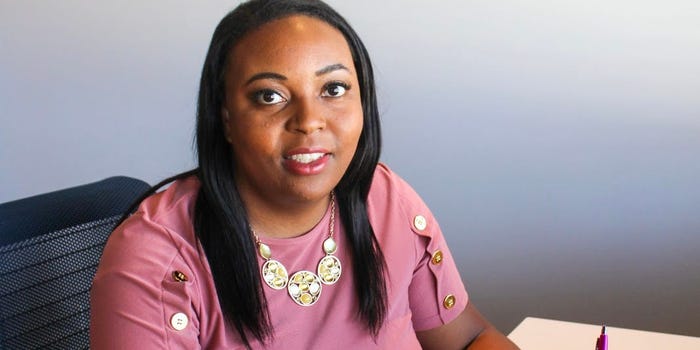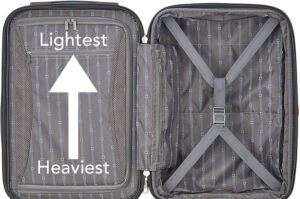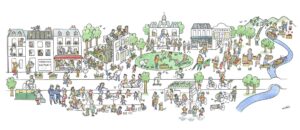I’m on track to retire early thanks to a $15 book that taught me everything I know about investing
6 min readI’m on track to retire early thanks to a $15 book that taught me everything I know about investing

Our experts answer readers’ investing questions and write unbiased product reviews (here’s how we assess investing products). Paid non-client promotion: In some cases, we receive a commission from our partners. Our opinions are always our own.
- I didn’t learn about investing growing up so I was thrilled to read “The Simple Path to Wealth.”
- Author JL Collins lays out a clear strategy for wealth-building, from debt payoff to investing.
- Thanks to the book, I’m now on the path towards FIRE — financial independence/retire early.
Around half of all US households have some money invested in the stock market, according to the Pew Research Center. Just a few years ago, I was part of the other 50% that didn’t invest anything at all. Investing has always been foreign to me, and I definitely didn’t learn anything about it growing up.
I’m thankful that, in 2017, I was able to read a book called “The Simple Path to Wealth.” I can’t remember if I ordered it online or if someone gave it to me. However, I was grateful that a man named JL Collins took the time to write this book and explain how readers could build wealth with a simple, easy-to-understand formula.
Now that I am working toward FIRE (financial independence/retire early), I find myself using many concepts from this book to inspire my own financial journey. Here’s what “The Simple Path to Wealth” taught me about managing money and building wealth.
You can define financial independence in your own way
I think one of the things that held me back from believing I could pursue financial independence was fear that my situation and goals were different from other people who were able to successfully build wealth. I started out my journey with a low income and debt, unlike the stories I hear from others who were building wealth while earning six figures by age 23 and had no debt.
Still, Collins, who grew his book from a series of letters he wrote to his daughter about personal finance and investing, explains that what financial independence means should be completely up to you. It’s your life, so you don’t need anyone to tell you that you need $X saved and invested by age 32 in order to be considered financially independent.
This book solidified the fact that financial independence doesn’t mean you have to stop working — it’s your choice, and the most important thing that money can buy is freedom.
A $1,000 emergency fund is not enough
To me, a $1,000 emergency fund has always seemed like a great start, but never enough. Having emergency savings can provide me with some peace of mind knowing that I can financially handle the surprises that life could throw my way, so I’ve always opted to save more.
In “The Simple Path to Wealth,” Collins highlights the importance of what he calls “F-you money,” which he describes as enough money to be completely free of the demands of others. Having this F-you money can give you a taste of the freedom that can be gained by reaching financial independence.
Knowing this, I hiked up the goal for my emergency fund and started setting aside an extra 1% to 2% of my income in a high-yield savings account just in case I needed a little bailout or to exercise my right to freedom.
The biggest obstacle to building wealth is debt
People may not like to hear this, but it’s true. Debt, whether good or bad, represents an amount that you owe to someone else. When you factor in extra fees and interest, maintaining long-term debt balances will set you up to enjoy less freedom.
In “The Simple Path to Wealth,” Collins urges readers to be careful about accruing debt and recommends a simple formula to help prioritize paying it off. I love how Collins’ formula is based on interest rates, or the common “debt avalanche method,” because that’s how I paid off most of my debt. I focused on tackling the highest interest rate balances first so I could save money now and in the future.
Collins recommends you prioritize your debt repayment strategy like this:
- Debt at less than 3%: Pay it off slowly and invest
- Debt between 3% and 5%: Use your best judgment to determine when and how you want to pay it off
- Debt with an interest rate of more than 5%: Pay it off as soon as possible
Investing doesn’t have to be scary or confusing
I’m not going to lie, I still don’t understand certain things about stocks and general investing lingo. I’m not a financial advisor or an investing expert. Thankfully, however, Collins explains that you don’t have to be a pro in order to build wealth.
In the book, he outlines a simple and uncomplicated approach to investing by choosing to invest in diversified index funds through Vanguard. Specifically, he recommends the Vanguard Total Stock Market Index Fund, or the VTSAX. The VTSAX has been around since 1992 and it’s a low-cost, broad-ranging index fund that allows you to invest in hundreds of companies all at once.
By doing this, I don’t have to pick individual stocks or worse, try to time the market and worry about the best times to buy or sell. Collins explains in the book how market downturns are normal and should be expected. This means it’s often not wise to sell stocks out of fear; in fact, this is how most people lose money.
The book goes on to provide real figures and research to demonstrate that for the past 100+ years, the market has always gone up and recovered after a drop. It’s self-cleansing, so when companies fail or go out of business, new and more profitable companies go public and take their place.
By investing in index funds, I feel more confident about my overall strategy to build wealth and can save time and energy by not worrying too much about the stock market.
For me, “The Simple Path to Wealth” has demystified the purpose and process of building wealth in America. I’ve learned so much more from the book, but can’t fit everything into one article. I’d highly recommend it for anyone’s reading list this year — especially if you are looking to gain control of your finances, invest wisely, and reach your own level of financial independence one day.
This article was originally published in March 2021.
Discover more from Slow Travel News
Subscribe to get the latest posts sent to your email.



